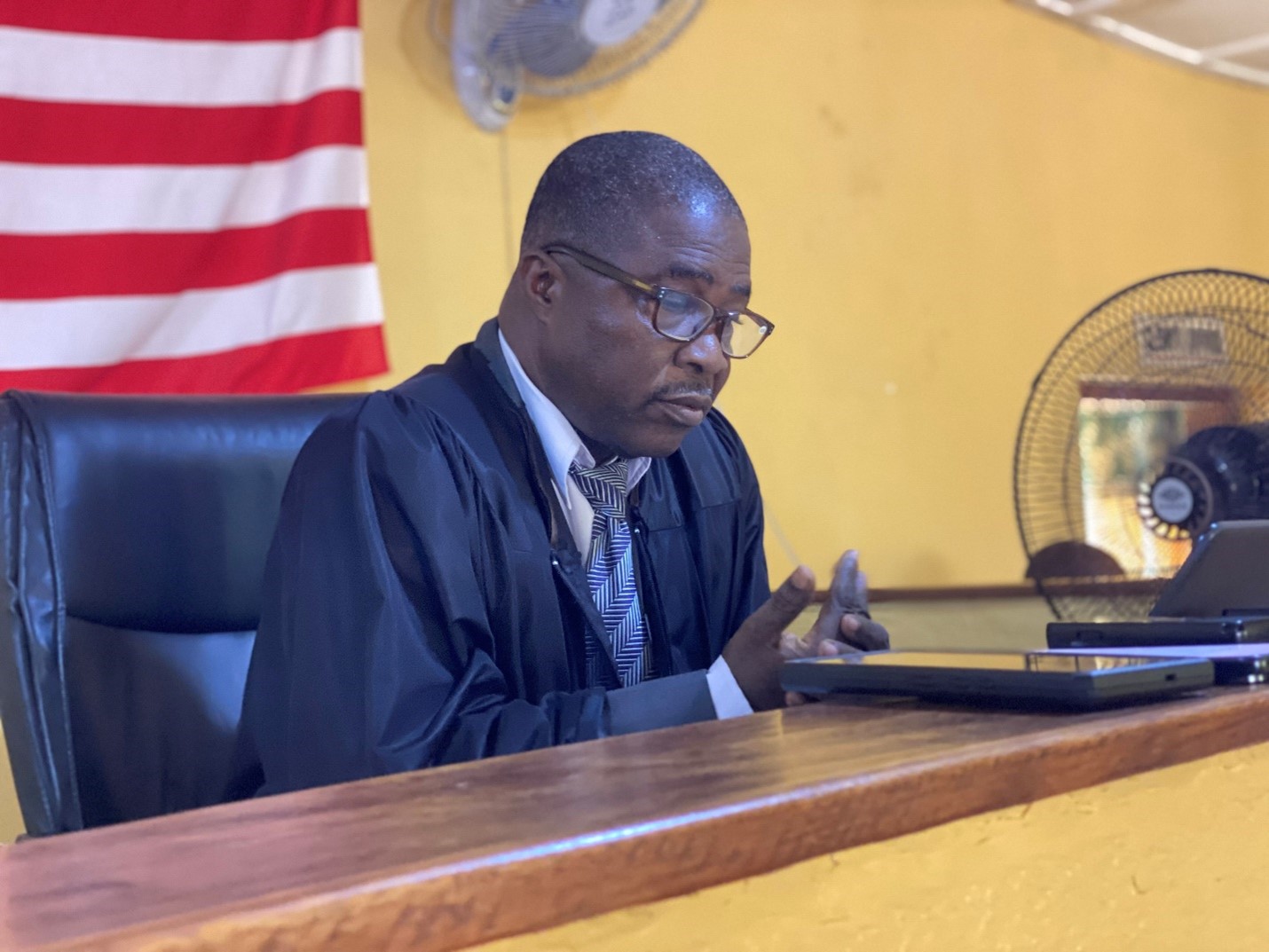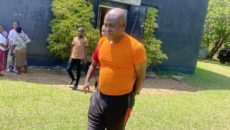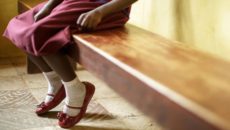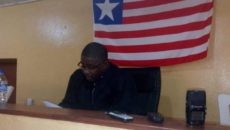BUCHANAN, Grand Bassa – As a new term for the Second Judicial Circuit Court opens in Buchanan, Judge Joe S. Barkon is calling for more judicial independence.
Speaking during the court’s opening for the May term on May 13, Barkon emphasized the importance of ensuring the safety and security of judges to protect the judicial system’s integrity. He said the Liberian judiciary has always strived to maintain its independence and remain neutral despite challenges ranging from political interference and inadequate budgetary support.
During his charge, the judge also noted that maintaining the judiciary’s independence requires judges to make fair and impartial decisions to resolve cases brought before them, free of any undue influence from external or internal forces or a party of interest.
“Justices and judges must, therefore, be protected in their rulings, decisions, judgments, coupled with their expressions while in their judicial capacity, which will unconditionally guarantee their ability to impartially and independently administer justice,” he said.
He said one way to assure the independence of the judiciary is to have judges appointed and promoted on merit, not on political interest, association, or relationship.
The call for the protection of judges comes amid a growing call for transparency and accountability in the justice system and past records of political influence against the dispensation of justice.
Barkon pointed out instances where the executive branch has interfered with cases and influenced rulings in its favor at the disadvantage of other parties. He said judges who fail to adhere to the executive’s persuasions often face reprisals.
He referenced a 2008 case, The Republic of Liberia versus Ex-General Charles Julu and others, in which the then-presiding judge of Criminal Court A, Peter W. Gbeneweleh, having examined the evidence presented by the state, concluded that the pieces of evidence were not sufficient and convincing to convict the defendants. He acquitted the defendants.
Barely a few days after the case was concluded, Barkon said former president Ellen Johnson Sirleaf publicly expressed her disappointment in the judge’s decision. Immediately following her statement on national radio, the judge was transferred to the 12th Judicial Circuit Court in Grand Kru by the then chief justice, Johnnie N. Lewis.
Barkon mentioned another instance of executive interference in 1987 when the late President Samuel K. Doe ordered the National Legislature to impeach Chief Justice Chea Cheapo for abuse of power and his non-compliant posture toward the presidency.
Barkon explained that Doe’s decision was a reaction to Cheapo’s decision to expose the executive’s manipulation in a case before the Supreme Court, in which the president had a vested interest.
This undue influence of the executive, he said, continued under President Samuel K. Doe’s regime between 1986 and 1987 and James N. Nagbe as chief justice, when the president ordered Nagbe and the entire bench of the Supreme Court to resign on allegations of bribery without any due process. Out of fear, Barkon said the chief justice and associate justices had to resign in 1987.
“These are some of the major challenges we, judges, magistrates, justices, and other legal actors, are faced with,” Judge Barkon said.
In his recounting of cases of political intimidation of judges for performing their legal duty, Barkon failed to mention the more recent case of former Supreme Court justice Kabineh Ja’neh, who was successfully impeached and removed by the Senate for official misconduct and gross breach of duty. The case caused a major political storm, with the Unity Party suspending eight of its senators for voting for Ja’neh’s impeachment. The Liberia National Bar Association was also vocal in criticizing the move, with the bar’s then-president, Tiawan Gongloe, condemning Ja’neh’s removal at the induction ceremony for his replacement.
“The removal of a justice for performing a legal duty creates a precedent that has the potential of making other judges, especially of subordinate courts, to be afraid to freely perform their legal duties when it comes to cases in which the interest of government or of powerful persons or entities are involved, thereby defeating the purpose for which courts exist in our system of government,” Gongloe said.
“Given this position of the LNBA, our presence here today is not an approval of the reason for which we were cited, for the constitution does not require such. We are here because [the] failure of a lawyer to appear and perform any service required by the court is contemptuous.”
Featured photo by Alexander Musa, Jr.



